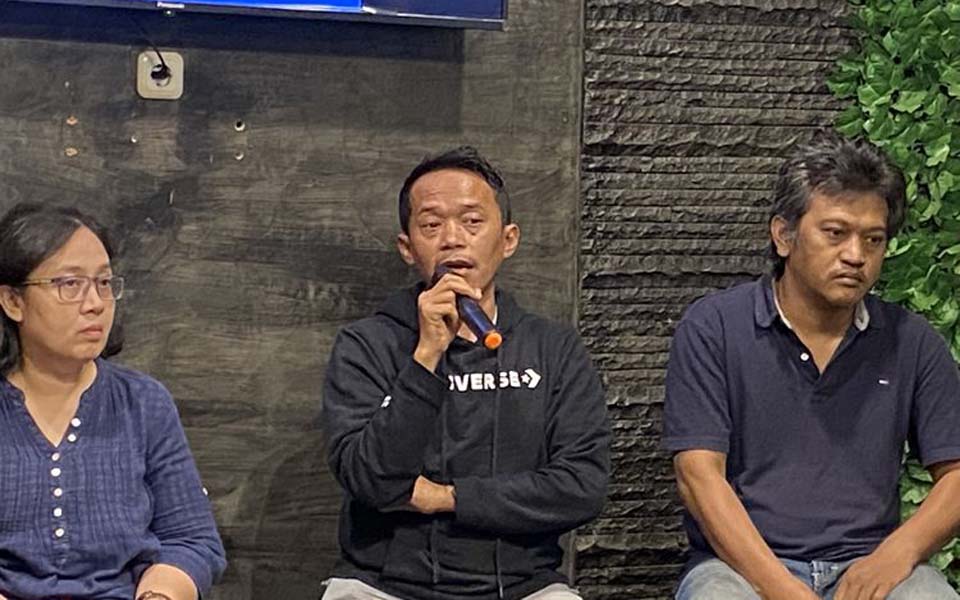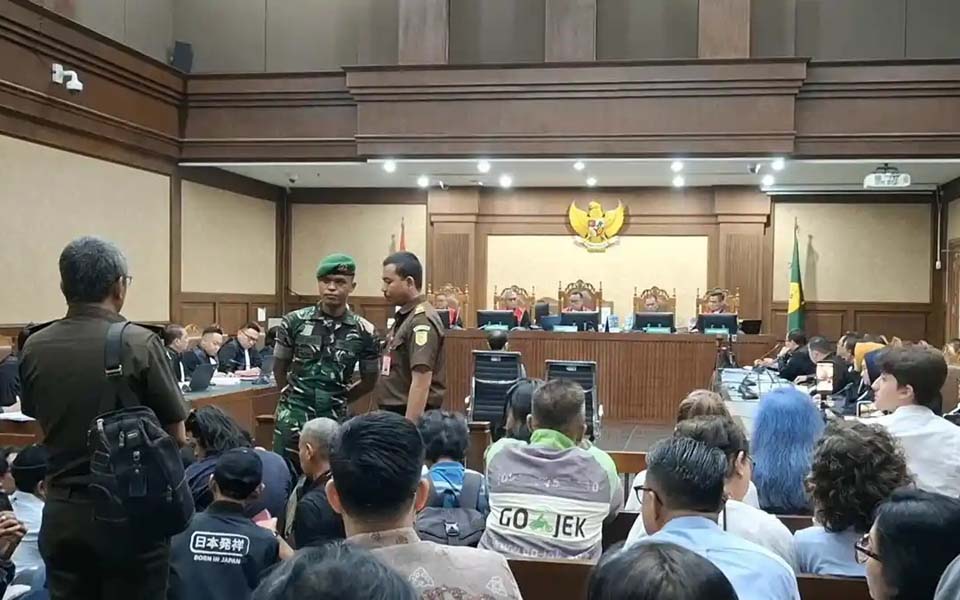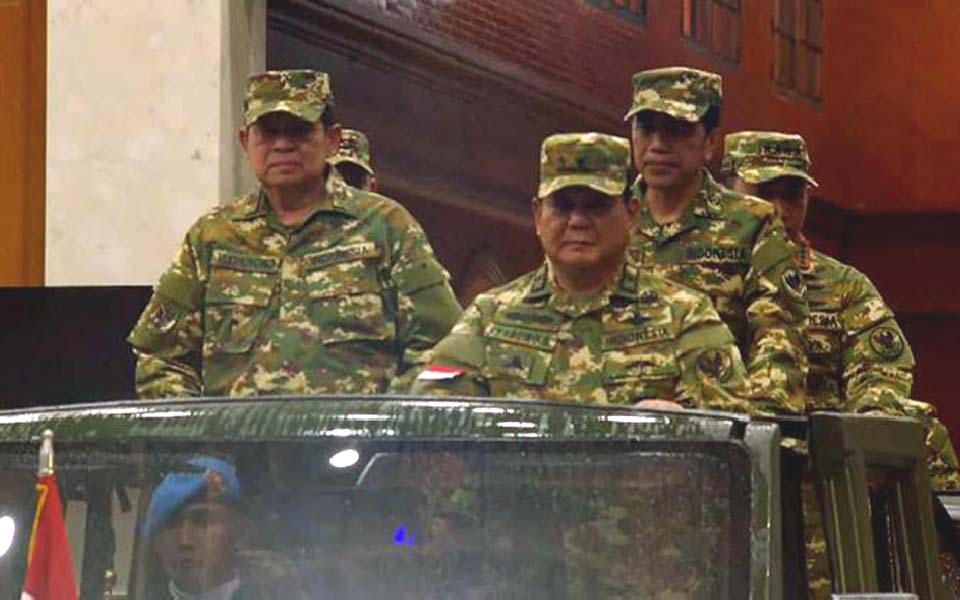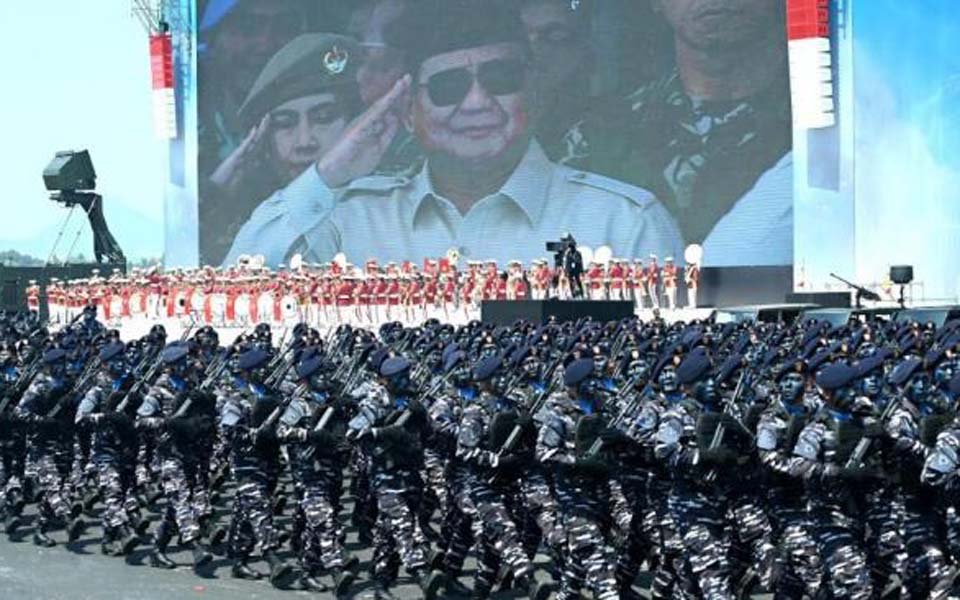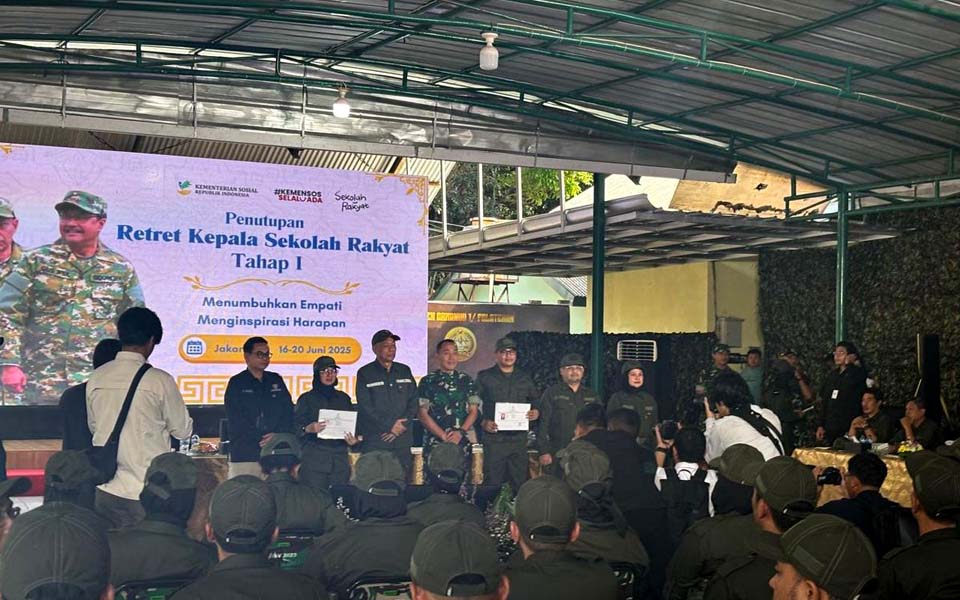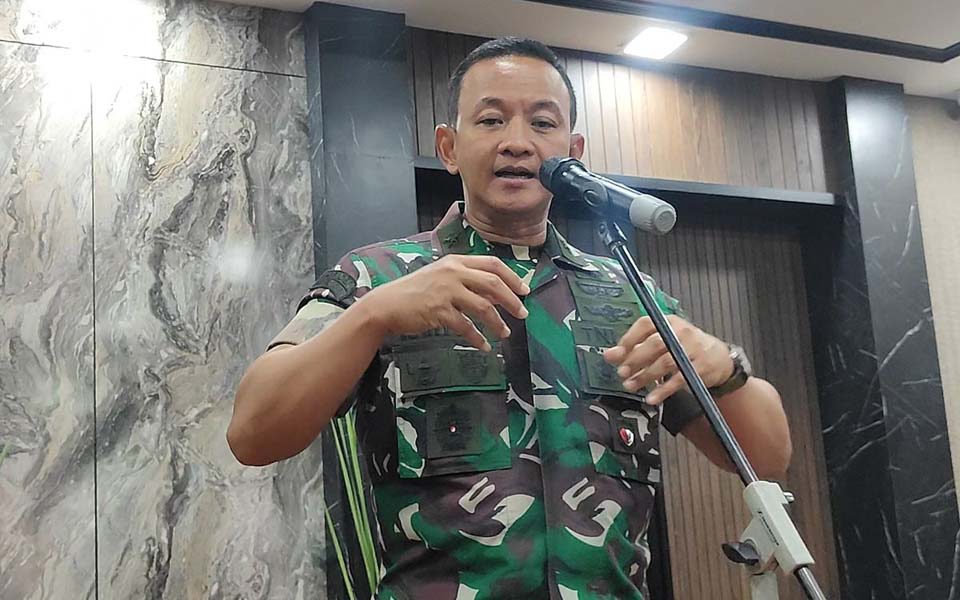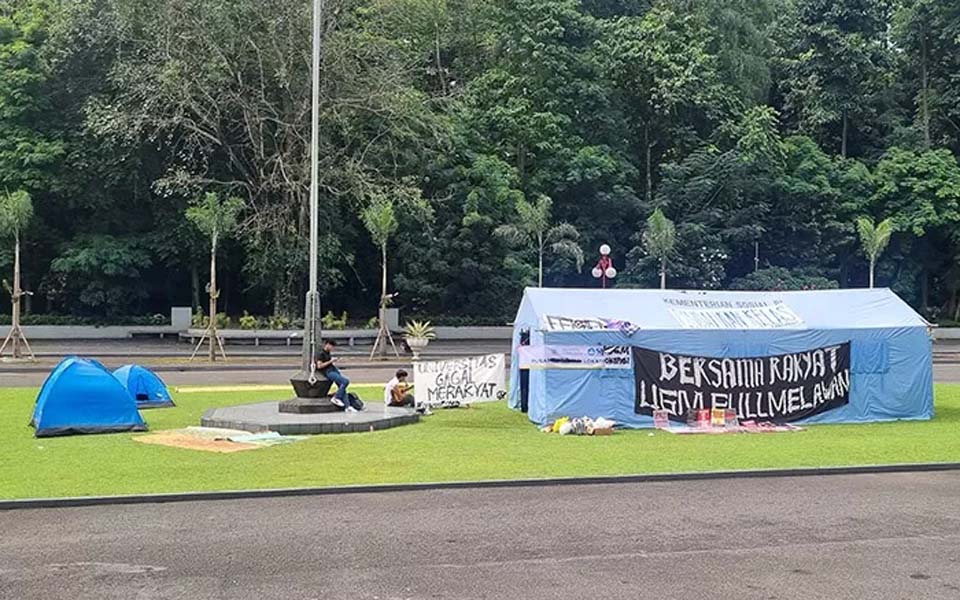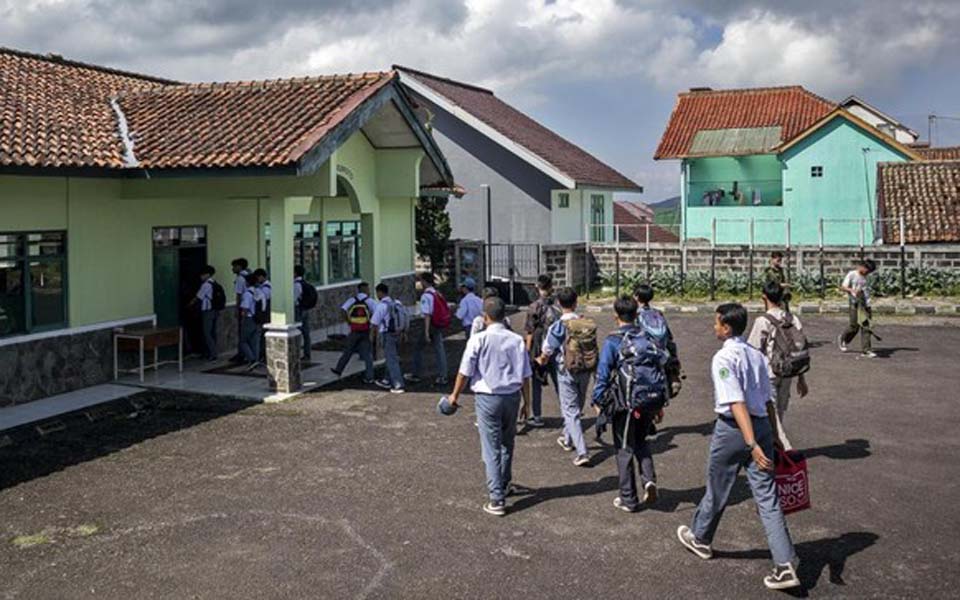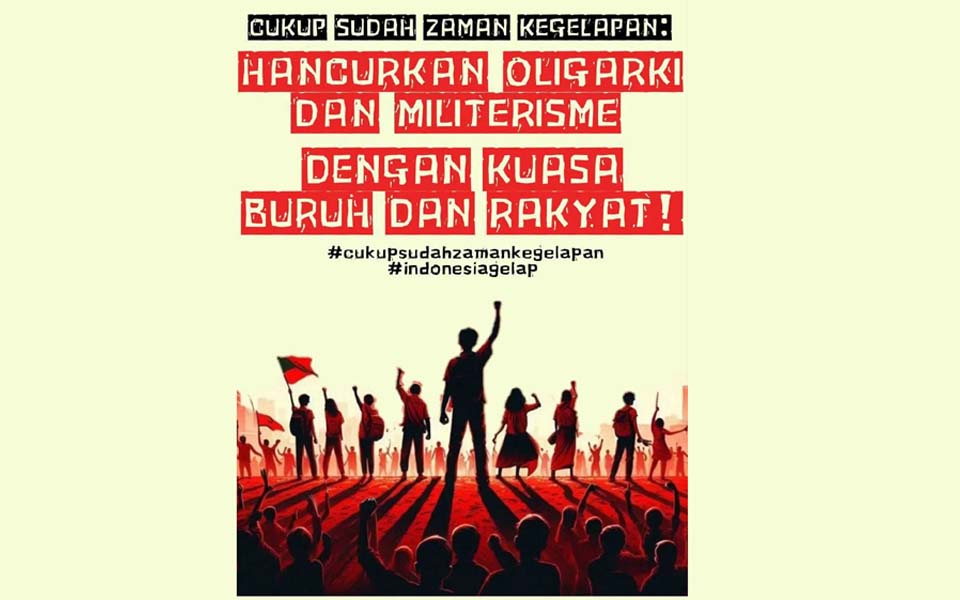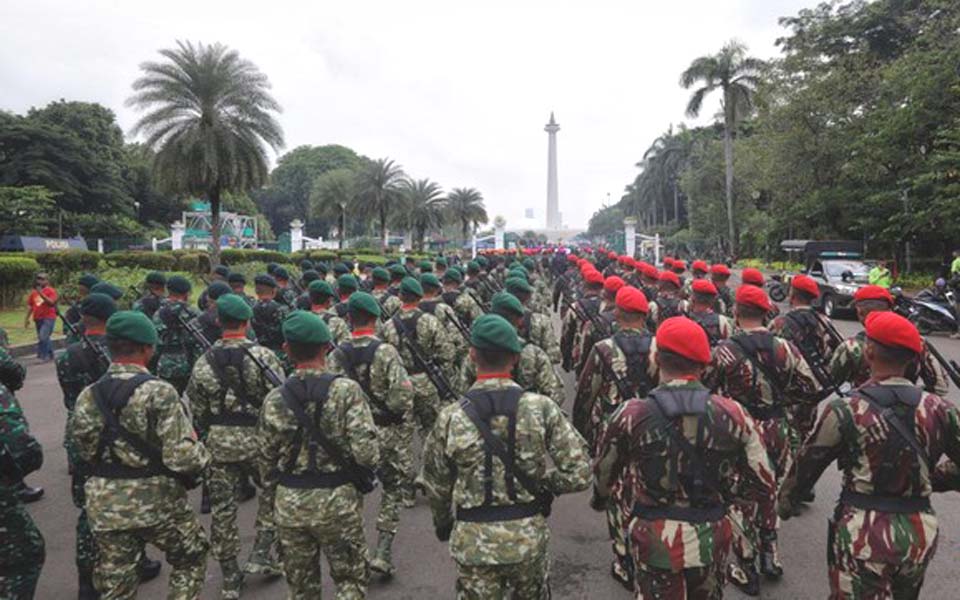Jakarta – A number of civil society groups have criticised the move by the government which is planning to allow active Indonesian military (TNI) and police (Polri) officers to fill state civil service (ASN) positions.
Indonesian Human Rights Watch (Imparsial) Executive Director Gufron Mabruri is urging President Joko "Jokowi" Widodo to cancel the discourse.
According to Mabruri, the draft government regulation (RPP) on ASN management from the Ministry of Administrative and Bureaucratic Reform (Kemenpan-RB) will only restore the practice of ABRI's (as the TNI was previously known) dual socio-political function (dwi-fungsi).
Yet, he said, the practice that was synonymous with the New Order regime under the leadership of former president Suharto was abolished as one of the mandates of reformasi – the political reform process that began in 1998.
Therefore, he considers it to be a form of regression harking back to the New Order.
"The planned policy (the ASN Management RPP) must be seriously studied and must even be canceled, bearing in mind that it is contrary to the agenda of reformasi", he said during a discussion on Sunday March 17.
Meanwhile, Human Rights Working Group (HRWG) Executive Director Daniel Awigra suspects that the government is trying to carry out a securitisation through the discourse on filling ASN positions with active TNI and Polri officers.
Awigra said that securitisation was the concept of making everything outside of security and defense issues coming under the military domain. That way, the TNI and Polri can enter the civilian realm on the pretext of maintaining security and national defense.
"In today's context it can be any issue, but in the context of the New Order it was economic issues. Anyone who was against development projects by the Father of Development (as Suharto liked to be known) could be said to be enemies of development. At any time people's (civil society) fate could be unclear", reiterated Awigra.
"If civil society does not say that there are symptoms of it heading that way and we don't want to let it happen, it means we reject this RPP, so I think our democracy is really in the on the horns of a dilemma", he added.
In the same tone, Centra Initiative Management Board Chairperson Al Araf said there are at least three main dangers if the TNI and Polri are actually allowed to fill civilian positions.
First, he believes that the policy would in fact weaken the professionalism of the TNI and Polri because their main task and orientation of maintaining defense could be neglected because they are busy with positions in government ministries and institutions.
Second, Al Araf emphasised that the competency required to fill civil service positions and members of the TNI and Polri are different. He emphasised that there were differences in the nature of the makeup of the military and a civil bureaucracy.
"The essence of a military formed in any country is training, education and preparation for war. So their doctrine (the military), is to kill or be killed. While the orientation of the civil bureaucracy is to serve, to serve [the public], they're different", he explained.
"So, if there are active military [officers] entering the bureaucratic sphere it will clearly disrupt the civil bureaucracy in its essence", said Al Araf.
Third, according Al Araf the policy actually has the potential to cause conflict between the military and civil servants (PNS). For example members of the ASN begin their career as state civil service candidates (CASN) then take part in extensive training and education before going on to fill civilian positions.
However, if this discourse becomes a reality, the structural positions that exist have the potential to be "annexed" by active military officers. This he said would lead to de-motivating the work of the ASN.
Based on an official statement on the Kemenpan-RB website, the plan to fill ASN positions with TNI and Polri officers will be outlined in a government regulation (PP) as a follow up to Law Number 20/2023 on the ASN. The ASN management RPP includes 22 chapters consisting of 305 articles.
Administrative and Bureaucratic Reform Minister Abdullah Azwar Anas says President Widodo approved the ASN management RPP on February 5 and he is aiming for the regulation to be completed on April 30.
"Of course the regulation is reciprocal in nature and there will be a strict selection [process], as well as being adjusted to the needs of the agency concerned through a talent management mechanism. We will get the best talent from the TNI and Polri and they also get the best ASN", Anas said in an official statement on Tuesday March 12. (tfq/DAL)
[Translated by James Balowski. The original title of the article was "Ramai-Ramai Kritik Wacana Anggota TNI dan Polri Bisa Jadi ASN".]





